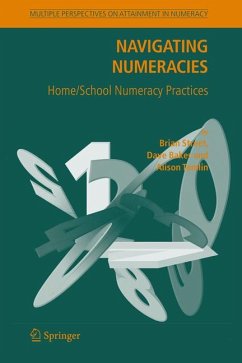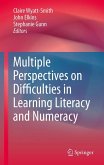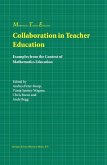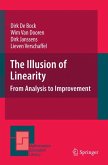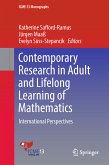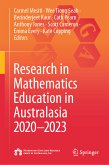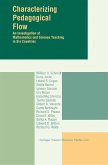The book aims to further understanding of why some pupils have low achievement in numeracy in the school context. The authors aim to achieve this by a relatively original view that focuses on numeracy as a social practice. They report on their investigations into the meanings and uses of numeracy in school and home and community contexts, using ethnographic-style approaches, including formal and informal interviews and observations. The book will be useful for policy, practice and further research into the teaching and learning of mathematics in schools. It will therefore be of interest to policy makers, teachers and practitioners, academics and practitioners in teacher education, education researchers, and parents and community leaders.
Dieser Download kann aus rechtlichen Gründen nur mit Rechnungsadresse in A, B, BG, CY, CZ, D, DK, EW, E, FIN, F, GR, HR, H, IRL, I, LT, L, LR, M, NL, PL, P, R, S, SLO, SK ausgeliefert werden.

